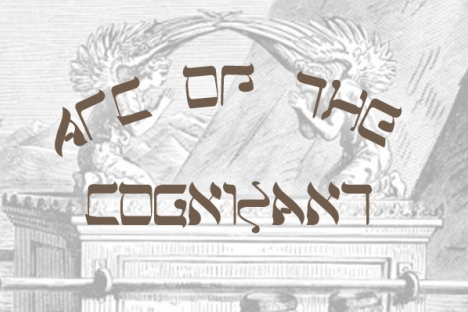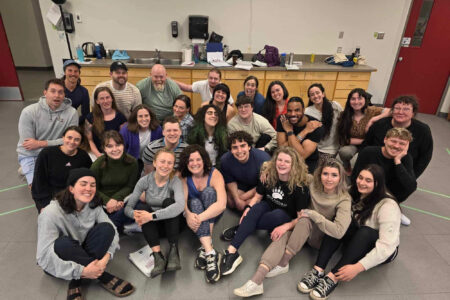Column: Elders, Part Two -- Generational divides?
The hand-over between generations: a lack of empathy?
“When I was a boy of 14, my father was so ignorant I could hardly stand to have the old man around. But when I got to be 21, I was astonished at how much the old man had learned in seven years.” — Mark Twain
Youth and Age, it is a commonplace observation, often suffer poor relationships, with respect lacking on both sides. The Mark Twain quote I use here reveals that as people age, they can learn more-nuanced ways of understanding their parents’ generation by experiencing growth. Experience of our own aging allows us to appreciate the feelings of older people.
It is also true that elders can deepen their empathy and compassion for the young by the effort to remember how it felt to be a young person. The older person was once younger — this is obvious. But the young have yet to become old, and we elders should not expect youth to grasp the perspectives of age.
In my opinion, youth has some defence for misunderstanding and disrespecting their elders, but the older generation is more culpable for attitudes of condescension toward youth. We elders have memory, for we have been at that place in life where they are, but the young can only use imagination to understand the old. To be young and to work effortfully to imagine being old, is improbable.
When I was young, I had no sympathy for the old. Neither did my age peers. The years of my teens and twenties were from 1960 to 1980, when we in the younger generation knew with arrogant certainty that we would build a better world than the mess of nature-devastation, suburban-dwelling tedium, consumption-addicted materialism, and Vietnam militarism our parents were so proud of. We had the moral high ground over the old, their war was atrocious and their bourgeois attachment to their possessions was pathetic – so said the gurus of my generation, our rock gods named Beatles and Dylan.
TV, press and other established spokespersons for the old called this the Generation Gap. This was a phrase much heard in the 1960’s when Youth confronted Age across the affluent West. The new phrase to denote a generational conflict is not “generation gap,” but rather a phrase coined by the young of our time; this one pits Sixties youth – aging Boomers – against the generations born after them, including their children.
“OK boomer” is a catchphrase and meme used by teenagers and young adults to dismiss or mock attitudes typically associated with people born in the two decades following World War II, known as Baby Boomers.
“The debate around ‘OK boomer’ is a new spin on the old debate over millennials — and an even older debate about ‘kids these days’ ”.
“We all know the immortal cry that ‘parents just don’t understand’ but in this case, the media and the cultural narrative around the ‘OK boomer’ meme isn’t helping — especially since so many attempts to “explain” the meme or “clap back” have missed the point about why millennials are mad.”
— selections from pieces online; search “OK boomer”
I am a Boomer, and I have a lot of sympathy with younger people who feel anger, despair, and anxiety for their future. This future is the one we elderly boomers have bequeathed to them. Greta Thunberg is right to ask us why we have been so selfish in our pursuit of career and pleasure that our consumption habits threaten the biosphere.
In Canada and America, boomers accomplished what has been the norm of the European settler population since colonization began 400 years ago: they surpassed the material consumption of their parents, as their parents surpassed the grandparents, all the way back to Christopher Columbus. Boomers have had an astounding harvest of taking from the planet. The planet is presenting the bill now.
The grim ecological and economic prospects ahead are a very large burden on the conscience of any Western democracy’s elder today – if you are aware how history accelerated in our few decades as the affluent ruling generation on the planet. Our immense affluence has been purchased by mortgaging the future of younger people coming after us. The market god of perpetual growth is no longer worshipped.
Not everyone agrees with me on the defects of boomers. I will drop the subject now, certain that the relationship between the elder generation and the one coming after is poisoned for us by the unprecedented crises of ecology and economy we are leaving to them to resolve.
Is History losing its worth?
As an historian by vocation and profession, I have felt keenly self-conscious about the worth or value of history as a study. History is the study and the record, the Past is what happened and the entirety of that past. The former is a fraction, the latter is the whole of human doing.
My writing in this column over the nine years I have been published has contained frequent pieces investigating how history can be, indeed is, of importance to society, significant to individuals, to governments, and to culture. I will not try to summarize all that I have argued for and against, as an historian believing that his subject has been poorly taught in many instances and used and abused for unworthy purposes. Let me simply refer readers to the published Massey Lectures for 2017 by Margaret Macmillan on the topic of why history matters.
Teaching history is one pursuit that people intuitively ascribe to Elders, and will readily assert is a reason why we need the voice of age in our culture. But I have to say this is rather weakly-reasoned. Elders are not trained professionally to teach history, and what they teach about their own past is memory, not history as I understand the word in its more-meaningful definition.
Elders can teach what they remember experiencing, and that is personal history. They can tell about the events that happened in “the news” over their lifetimes, and that is remembered journalism, still not history.
A special case for the elder and his/her place in history is when the voice of veterans of Canada’s wars receive great public attention every November 11, but this is not a way to learn history either. Why not? Because the veterans are not historians and their contribution to the debate over war and violence deserves no more respect than other amateurs speaking about historical subjects.
(I have been at pains to say in writing, in my radio broadcasts, and with annual street protest why we should lessen propaganda for the “heroism” of our military services who “died for our freedom”; the pretense that this is merely uncontroversial history rather than intended cultural indoctrination, provokes me. I have protested war on Remembrance Day, and felt the extreme displeasure of people who think I am disrespectful).
History is not relevant in the struggle to assert the value of elders. Because history is about the past and elders lived in the past, it is assumed that history has some special significance because Elders teach history to our culture. No, history is not the preserve of the elderly just because they are old. We leave that work to professional historians. They teach the facts I was referring to when I said above that education about facts is not, in our highly-technical culture, the work of elders.
Let’s get revenge on the Past for the injustice that happened then
In fact, today we have an excellent example of a movement against historical remembrance that shows how elders cannot make special use of their memories to teach the young. I refer to the rage against monuments, statues, and institutional names that memorialize Canadian leaders like John A. Macdonald. He had racist attitudes? Away with his memory! Tear down his statues! Erase his name from institutions!
The irrational, highly-charged feelings of young people drive forward the movement to fight racism, colonialism, misogyny, sexism, homophobia, anti-lgbtq2 prejudice. One way they believe they win the fight is by uprooting any sign of respect, any memorialized legacy, for leaders they deem unworthy. They attack famous figures of the past when those historical people fail to meet standards of present social ethics and political values.
A historical personage who fails the test of correct thought because their thinking cannot match the righteousness of our standards in 2020, must be erased from history and memory. To me this is absurd, a perversely wrong-headed way to pursue social justice.
The anti-racist feelings of the young are not to be dismissed; I do not mean any disrespect to the people who have taken on this cause. For them, it is evidently a matter of fighting for retroactive justice, justice denied to people in the past. I take their intentions seriously. Their methods are simply not appropriate to their ends.
The values or prejudices of authoritative historical figures were shared with the silent majorities of the populations in their societies. Racism was scientifically “respectable” in the 19th century, propagated through universities, print media, public schools and churches. One cannot get revenge on that past by attacking past leaders.
The self-righteous assumption we must do as the zealots of correctness demand, and erase the names of “bigoted people” from our historical records and cultural memory, is to me an affront to what historians do. Historians tell us what people of the past did and said. Other people in the present decide what monuments and memorials are honoured for people of the past. (This is what I protest about Remembrance Day: how authorities and institutions abuse historical truth in pursuit of a clandestine intention not revealed to the public, viz., to undermine pacifist values in our population that would impede mobilizing Canadians for a war.)
Let me attempt to make the point with examples. Winston Churchill abused alcohol and tobacco, and was an unabashed Imperialist, yet is still honoured despite being so out-of-harmony with youthful contemporary values in 2020. Tommy Douglas was a pious Christian; this religious conviction is quite out-of-sympathy with young “progressives” in social-justice movements today who are overwhelmingly secular and hostile to Christianity’s moral codes and social strictures. Still Douglas is revered among progressivists for championing socialized medical care.
We cannot cease to write about and study historical people because their thoughts and words – not their deeds, which can and must be judged – reveal attitudes and prejudices we now disavow and detest in 2020.
If every person who “made history” but had now-outmoded values revealed in their parliamentary speeches or nasty thoughts discovered in their diaries, must be cast out of the culture, our history books will be blank. Think this through.
An absurdity: honouring typical historic leaders = celebrating racism
Here is the clearest way I can think of, for making the point to youthful activists passionately trying to erase “bad guys” from our public history: “The Past is a foreign country.” Respect people in that foreign country, as you respect foreign countries’ people living today.
Young people devoted to social justice are very sensitive to people who are indeed from a foreign country, culture, or ethnicity. The person who cares about social justice is exquisitely attuned to giving offence to a stranger who may not know all the nuances of Canadian mainstream culture, who might be easy to pick out of a crowd due to their foreign-ness. Embrace multiculturalism, be kind and accepting of people who do not conform to some standard cultural norms: this our way now.
If you can be understanding of a person from Africa or Asia who shows traditional attitudes to religion or family, if you can forgive ignorance because a person has not had the time to acquire your up-to-the-minute progressive values, surely you can forgive people of the past who had patently different cultural and educational grounding than you do. Anger against them for having ideas typical of their time and commonplace in their social-educational milieu, is self-evidently mistaken.
To the activist who rages against the racism and colonialism of Canada’s past political, religious and/or scientific leadership, the men who led Canada up until recent times, I say: the past was not like now, and how people thought then is not to be attacked as if the thinking was deliberately malicious. The thinking was the norm, not an outrage among other people of the time.
Common Sense, as I understand it to mean
No matter how often you repeat it, it is not true: a statue to a man who was an inspiring leader in a national crisis or invented some wonderful medicine does NOT perpetuate racism or colonialism because this person had attitudes about race and empire entirely in harmony with majority opinion in his time.
The statue is to honour and memorialize the explicit accomplishments it speaks to.
Was the person also an unpleasant character, with undesirable habits and wrong attitudes? Well, he or she did something positive, significant, beneficial… despite these unappealing aspects of their inner self.
You don’t have any sensible argument to prove the persistent notion that his statue “memorializes” (honours, celebrates) Canada’s racist, colonialist past just because the man held ideas repellent to the values of 2020 progressives. That’s complete nonsense.
All humans are flawed. Flawed individuals can do great things, like establish a confederation called Canada enjoying liberties within the British Empire.
My old-man Jeremiad against the Internet, cellphones, and world-wide web
Technology evolves, changed by constant push from the competitive demands of a capitalist market economy. This is the system we must live under, apparently. It drives forward the relentless acceleration of change in our tools and instruments.
The internet and cell-phone are the tools of the age. Elders do not master these tools as well as younger people do, for we have not grown up with them from childhood. I feel no urge to be as competent with these as younger generations.
I do feel the human race is inherently unready to resist technologies that massage our brains with algorithmic intelligence at work behind the screens of our tools. We have the research to prove how addictive screens are, and why the human mind is so vulnerable to the intentions of the Overlords of Artificial Intelligence.
The internet is not benign merely because it is apparently so inexpensive and accessible. Yes, there is (apparently) so much “for free” online. No doubt however, a cost is being incurred by some parties who supply our screens with endless free data inputs: you must know those parties are intent to turn their “gifts” into a profitable outcome. Their profit is in the data they obtain about us, data that can be sold, data that enables someone somewhere to sell something to us.
The bottom line is the profit motive. Is this a motive you want to entrust with your consciousness?
Susceptible as our minds are to the seductions of what screens do to saturate our senses, we need self-discipline and control of our impulses like never before. But the strong capacity to fight back against the invasion and manipulation of our consciousness by the internet and the cellphone is not being learned. Rather the reverse.
The technology is winning the fight, we are becoming less able to exercise critical independent thinking. As no less a mind than Albert Einstein put it: “It is clear that our technology has outpaced our humanity.”
Elders could be leaders in the resistance to the power of this technology. We are not so enamoured of it as younger people. We are less subject to economic pressure to succumb to the demand that we conform, that we must allow our employment to invade our privacy no matter where we are, so long as we have an internet and cellphone connection.
Weknow the value of quiet, of solitude.We grasp the worth of person-to-person, physical – not virtual — friendship, for we lived in a time when this was more normal for friendship. We know it from experience. We can be witnesses for that lifestyle.
Will we have an opportunity to teach what we know? Will we be asked to teach it? The words I quoted from the bible in an earlier section come to mind again. The pessimist and misanthrope in me seriously doubt global culture at large invites us to teach how to fight the addiction of screens.
We were then, this is now. “Progress,” that ruling myth of our culture, has no use for looking backward.
Conclusions
I do not think we elders can mount a cultural counter-movement to the forces which challenge the value of what we think we know. Our offerings are not invisible but I see little evidence we are weighty influences in the culture as it unfolds itself.
In an individualist era, the individual is thrown on her and his own resources to infuse age with meaning and purpose. You had best find your sense of value within.
By all means, fight for causes you believe in, as you always have at earlier stages of life. Be vocal for human rights if you have a political bent. Join political parties.
At the end of the day, and at this late phase of life, you and I, old reader, will be as valued as we are loved. Kindness always matters: leave a memory of that if you can.
























